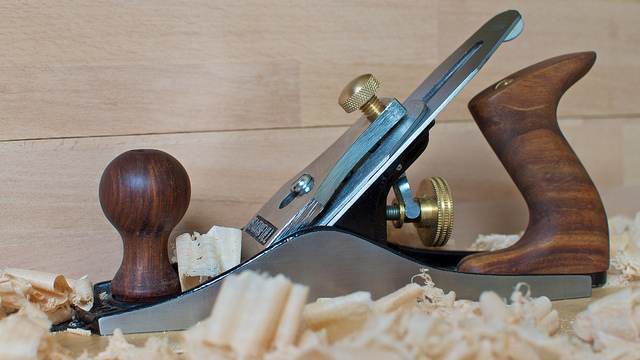5 Money-Saving Tips for Rookie Woodworkers
It’s no secret that woodworking is expensive. Not only do you need a nice set of tools, but you’ll also need to invest in materials and, perhaps, some woodworking plans. Altogether, woodworking tools, materials, plans, and your time will cost you a pretty penny.
So, how can you preserve some of your funds when you’re first starting out? Well, here’s a list of tips that’ll help you get the most bang for your buck:
1. Know Your Tools
Whether you purchase tools that are brand new or secondhand, you’ll want to make sure that you’ve done your research. Know the tools in and out–their functions, their market value, and what they can contribute to your woodworking projects. Being informed ahead of purchasing will help you invest wisely. This is especially true when buying secondhand, as having better insight will help you avoid spending money on tools that don’t work or won’t get the job done properly. If you’re looking for the cheapest option that still offers quality, then hand tools are the route to go. Keep in mind, though, that using hand tools may require more of your patience than power tools do.
2. Make Use of Scrap Wood
When you’re first starting out, the idea of retrieving new lumber right off the hardware store shelf seems exciting. But the truth is, not every project requires shelling out extra bucks for off-the-shelf pieces. Depending on the scale of your project, scrap wood is absolutely a suitable material to work with. Your local hardware store or lumber yard may have a few scrap pieces for you to choose from. Alternatively, you might also try scouting a nearby Habitat for Humanity ReStore for your materials.
3. Take Advantage of Maker Spaces
Sometimes collaboration and group efforts are the best ways to learn a craft. If your community has a maker space where you can learn woodworking techniques and new skills for a minimal amount of money, do try to take advantage of it. These spaces not only offer a place for you to learn new skills, but many of them also offer resources like tools and plans that’ll help you grow as a woodworker.
4. Be Realistic
While you may envision yourself to be the next great woodworker, you’re probably not quite there yet. So, approach each project you embark on with a realistic frame of mind. Overestimating yourself can result in huge mistakes that cost you material, tools, and time. And as a novice woodworker, learning to be economical with all of those things is a skill you’ll carry with you for the rest of your woodworking career.
5. Make Safety a Top Priority
Let’s face facts–injuries cost money and when you’re a woodworker, the risk of injury is ever-present. With that in mind, please make certain that you’re doing everything you can to keep yourself safe while woodworking.
That means, knowing your tools inside out and understanding all the ways in which they might backfire. For instance, running a piece of wood through a table saw too quickly or too roughly could cause kickback, which is extremely dangerous for the person operating the saw–YOU. So, just make sure you have a solid sense of how, when, and why a woodworking task might go haywire. And last but not least: always be alert when you’re in the shop. Â
Now that you’re equipped with a few money-saving tidbits, don’t let the price tag of a woodworking project deter you from following your passion. Besides, after a few years of hard work on the craft, you’ll thank yourself for having spent a few bucks to get started.
Image Credit: damienpollet

